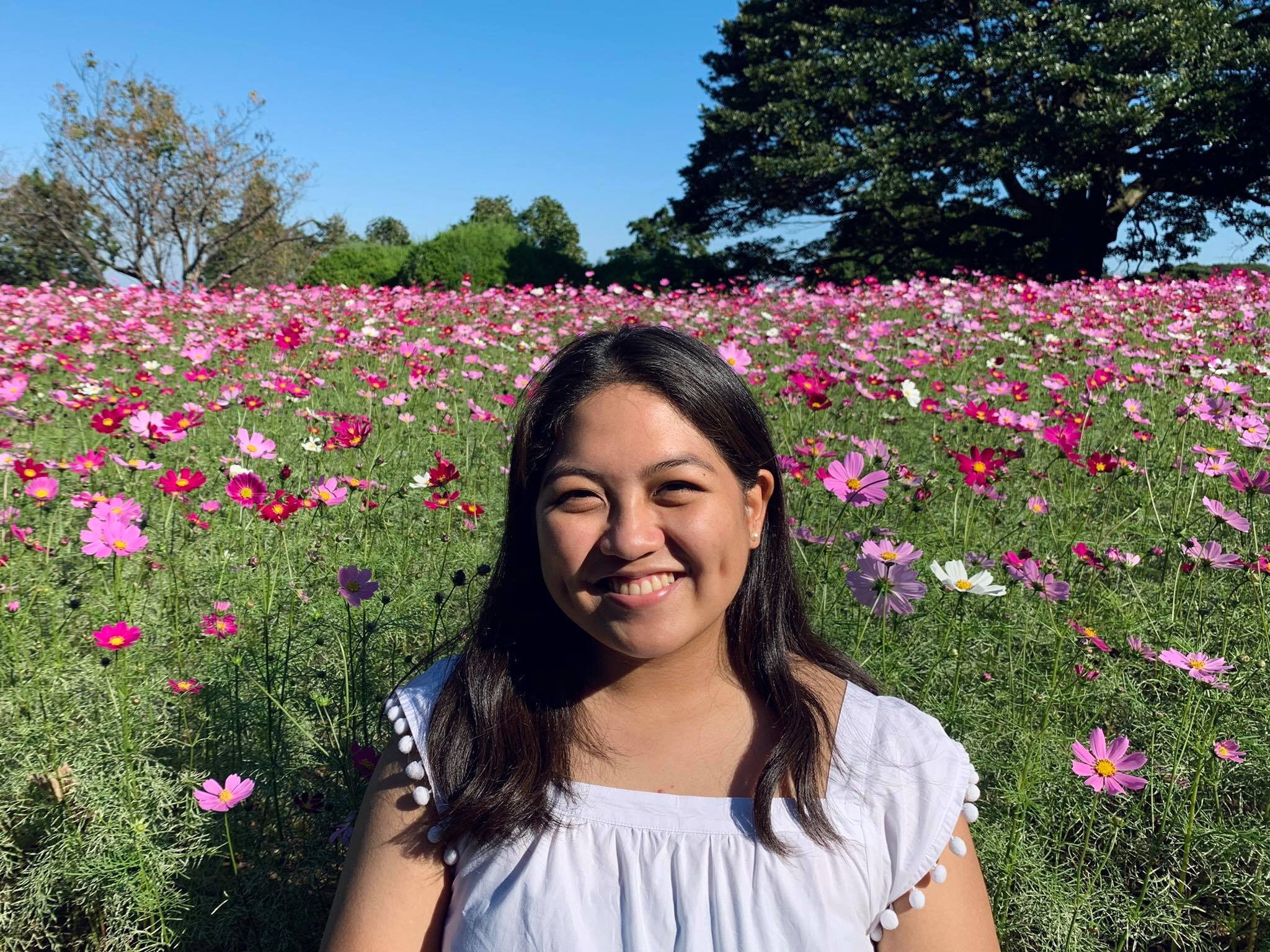Interview with Audrey Pe and Jessie de Grano of WiTech
Introduce yourself!
Audrey: I’m Audrey Pe, founder and executive director of WiTech and an incoming freshman at Stanford University. Born and raised in Manila, Philippines, I love talking about the intersections of tech + society and can be found reading an eclectic mix of books in my free time.
Jessie: I’m Jessie de Grano, 18 years of age, and an incoming freshman at the University of the Philippines. I would describe myself as a teenager who runs on (a lack of) sleep, Netflix, books, and furthermore, the drive to make a change and shed light on the gender and socio-economic gap in technology in the Philippines. I’m currently the VP for Community Development for WiTech and the upcoming WiTech Manila Head for the next cycle.
Introduce WiTech (Women in Technology) - what’s your mission and how did it start?
A: WiTech is a youth-led nonprofit organization that aims to educate, inspire, and empower youth to break gender barriers and use tech to make a difference in society. I founded WiTech as a blog back in 2016 after feeling firsthand a lack of support from my community upon expressing my interest in tech. I didn’t want to wait until I grew up to start acting upon the gender gap in tech; I wanted to make tech more accessible and equal for present and future generations given the resources I had as a high school sophomore. Hence, the launch of the WiTech blog--a platform to highlight the stories of women in tech around the world in the hopes that youth could read their profiles and redefine what tech industry looks like to them.
J: WiTech has really grown so much from the blog that it was before. We’re a team of over 50 members who are all passionate about the advocacy. Some of our major programs include our Women in Tech Conference (WiTCon), WiTalks, Roadshow, Women in Tech Teach (Wi-Teach), and Chapter Expansion. Through these programs we’ve impacted over 1000 students in and out of the Philippines. All of these programs have the goal of achieving gender equality in the tech industry and in society through increased networking opportunities and mentors for the youth interested in entering the tech industry in mind.
How have you all adapted to life during the Covid-19 pandemic? How is life at home? How is running your company changed during this time?
A: Because our team communicates primarily online, the shift in operations hasn’t been massive! What’s been difficult has been having to cancel all our events for 2020, but it’s essential that we put the safety of our event participants first.
J: We’re actually currently transitioning to our next cycle. The whole process of shifting to online work has been a challenge but
A: At home, I’ve personally been doing a lot more calls with individuals and organizations because of how much more time a lot of people have on their hands. Lots of the calls I do aren’t necessarily work-related, in that I informally mentor other teenagers who want to launch nonprofits of their own. It’s exciting to get to hear out their ideas and connect them to people who could help them out.
What would you say is your biggest accomplishment? Personally & work-wise?
A: Work-wise, giving the opening keynote speech at the UN Youth Co:Lab in the Bangkok UN HQ was utterly surreal. Speaking to diplomats and young leaders across the region made me realise how far WiTech has come from a blog that I maintained in my bedroom. Personally, getting into Stanford was something I totally didn’t expect to ever happen. Both my parents never studied abroad and I had to do a lot of DIY prep and research for the whole application process. I’m excited to study alongside people from around the world and apply what I learn into making a more equitable tech scene here in the Philippines.J: Throughout high school and even continuing through university, the people of the Philippines have been funding my education and I will forever be grateful. I’ve always wanted to pay it forward and I did exactly that with Wi-Teach. Setting the whole project in motion has been my biggest accomplishment work-wise. So far, we’ve held 4 Wi-Teach programs in and out of Metro Manila. We’ve taught more than 100 students, teachers, facilitators, and even mothers a range of topics from basic computer usage to simple coding! We’ve got a wonderful team working with us for every single program to bring tech and tech education to those who may possibly not have the same opportunities as us in the world. There’s absolutely nothing that matches the wonder that we see after we teach. Introducing all these men and women of any age has been a step in crushing gender gaps in the tech industry and society. We’re excited to keep this project up and running for the next few years.
Personally, I think my greatest accomplishment is getting out of my comfort zone and making the most of my time. Who ever thought that speaking or teaching in front of a crowd would become the norm for me? I started embracing my achievements in the scene and channeling my stories to attempt to inspire others to do the same.
Who inspires you? Do you have any role-models in your lives?
A: Powerful, ambitious women like Ruth Bader Ginsburg, Michelle Obama, and Reshma Saujani inspire me!
J: I really look up to my other fellow Filipinas who are also wo-manning their organization such as our very own Audrey Pe and Marla Abao from WiTech, Arizza Nocum from KRIS Library, Chiara Amisola from Developh. They’re all true testaments to what we can do to make a change in this country and in the world.
What do you think are the biggest issues Asian women face today?
A: There are so many gender stereotypes that exist in predominantly patriarchal Asian societies like the Philippines. Personally, I’ve been told that tech ‘isn’t a good fit’ for me; what breaks my heart is that this isn’t an uncommon experience. Once we work past stereotypes, we teach present and future generations to believe that they can be anything--regardless of what society tells them.
J: Asian women face both the gender bias as well as Asian stereotyping. Firstly, Asian women are faced with misidentification of ethnicity, a testament of the lack of understanding and inclusivity for the group. Along with this, Asian women are stereotyped as quiet workers who cannot speak up. Asian women experience being seen as incapable of leading. So many expectations are put on young Asian girls to be naturally smart or look or act a certain way which is usually to be submissive and/or for lack of a better word, cute. Like Audrey said, we absolutely have to crush these stereotypes and we can do this by educating, inspiring, and empowering the youth. Changing these stereotypes will come from increasing awareness on the issue at any age, using our platforms to amplify the voices of Asian women, setting examples, as well as taking collective action and joining causes that empower Asian Women.
What would you tell a young woman interested in technology?
A: There are so many communities and people from around the world that are rooting for you! Get in touch with us at WiTech, cold message professionals on LinkedIn, or even self-promote your tech journey via social media. You never know what kind of meaningful connections can come out of being vulnerable and brave enough to share your story online.
J: Don’t let anyone tell you that you’re too young to do anything. As long as you have the motivation and passion for a cause, don’t be afraid to work towards it. Like Audrey said, you’ll always have support. The voices and actions of the youth must and will be heard, respected, and validated.
What is next for you and WiTech?
A: As I’ll be beginning university in the US soon, Jessie will be leading the operations here in the Philippines while I’ll be handling our chapter program!
J: WiTech is certainly growing faster than we could have ever imagined. As previously mentioned, we’re moving to our next cycle this August and I’m hoping for WiTech and WiTech Manila to be more tight-knit than ever. We’ll still be continuing with our projects but adapting them if the COVID-19 situation progresses. We’re really looking forward to a lot more members and a lot more ideas coming in.
Audrey Pe (@audreyisabelpe) is an incoming freshman at Stanford University and the Founder and Executive Director of WiTech (@witechorg) – a nonprofit organisation based in the Philippines that aims to educate, inspire, and empower youth to make a difference and break gender barriers using technology.
Through WiTech, she has been working on projects at the intersection of technology and education since she founded the organisation at age 15. She is now 19 and finishing up the remainder of her gap year. In quarantine, her time has mostly been spent on partnership calls and hosting webinars on topics ranging from founding WiTech to social media management.
Her work with WiTech has garnered her recognition as a 2019 Global Teen Leader, 2018 Zonta Young Women in Public Affairs District awardee, 2019 Zonta Women in Technology Asia-Pacific District Scholar, Opportunity Desk 30 Under 30 Changemaker, 2020 Women in IT Advocate of the Year Finalist, and 2019 Women in Tech Global Aspiring Teen Award Finalist. A two-time TEDx, ASEAN and UN speaker, she has delivered over 30+ talks and has also been featured in local and international publications like Esquire, Forbes, and Elite Daily.
Jessie de Grano (@jessiedegrano) is an incoming freshman at the University of the Philippines. Having dealt with the gender gap in the technological and research field herself, she wants to be able to change exactly that. Jessie joined WiTech in 2017 to stand together with other women and be able to empower others. She is currently the WiTech VP for Community Development as well as the next WiTech Manila Head for Cycle ‘20-’21.
Part of her role in WiTech is to handle the org’s networking opportunities as well as manage WiTech’s sustainable outreach program, Wi-Teach or Women in Tech Teach. Through this program, students, teachers, and other beneficiaries are given access to tech and tech education. Throughout the next year, she’ll be leading WiTech Manila.


